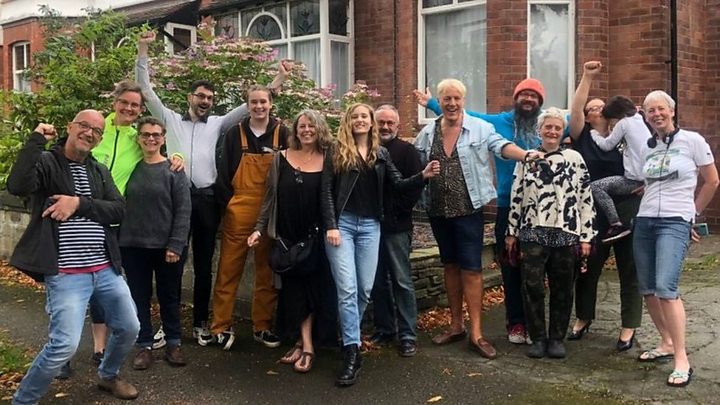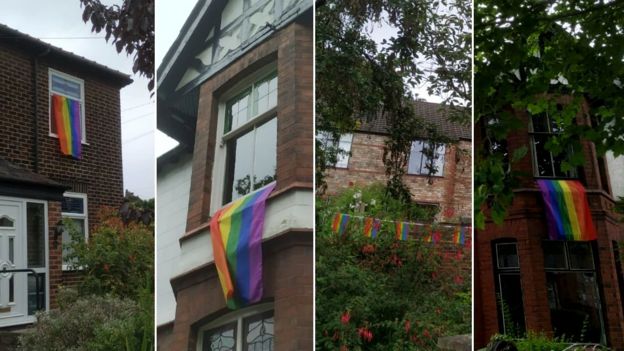
https://mymodernmet.com/university-of-tennessee-t-shirt/
https://www.nytimes.com/2019/09/09/us/bullied-student-university-tennesee-shirt.html
A fourth grader (10 year old) in an elementary school in USA was bullied because he wore a home made shirt supporting a local college. The elementary school held a "college colors day" where pupils are encouraged to wear shirts with the colours of their school; the aim is to show school pride.
The boy did not have a shirt to wear so he made his own, writing UT (University of Tennessee) on a piece of paper and stapling it to the front of his shirt. He was proud of his effort, but some children made fun of the boy because of his home made shirt; his teacher describes how he came in to the class after lunch, sat down at his desk alone and cried.
The teacher shared a picture of the shirt online asking if anyone had a spare UT shirt that they could send to the boy. The University of Tennessee saw the post and decided to create a new college shirt using the boy's design. The shirt quickly became so popular the college website crashed; 50,000 shirts have been sold in a week with proceeds going to a stop bullying charity.
Within a week the University offered the boy a scholarship to their college, covering tuition and fees. Should he choose to go. he will be have a place at the college in September 2028.
What do you see in the picture
what do you think UT stands for?
what might the story be about?
explain the story
- why do you think schools hold College Colors day?
- how do you think the boy felt when he realised he might be the only child without a college shirt?
- how do you think the boy felt when he had the idea to design his own shirt?
- why were some children unkind?
- "he sat down at his desk and cried" why?
- why did the teacher put the photo online? What was she hoping for?
- how do you think UT felt when they heard the story?
- UT could have just sent a shirt, but they chose to use his design and make a new shirt - why?
- why has the shirt sold 50,000 in a week?
- why are UT sending a portion of proceeds to a stop-bullying charity?
- Why have UT offered the boy a scholarship?
- what can we learn from the boy?
- What can we learn form the teacher (she chose not to be a bystander; she chose to take action)
- what can we learn from UT?
- why is this story about No Outsiders?
Thank you to the Cheshire West teacher who told me about this wonderful story
No Outsiders in our school: Teaching the equality act in primary school by Andrew Moffat
Reclaiming radical ideas in schools: Preparing young children for life in modern Britain



